Nightingale’s legacy: Behind the scenes of modern nursing
When not doing rounds or giving medicine, nurses can often be found doing a lot of charting.
Lambert High School is quite notable for its healthcare program. Ask any student in the program, however, and the answers turn out to be very similar. Doctor, surgeon, or specialists such as oncologists remain the most common goals of future healthcare practitioners.
Not very often is credit given to nurses. Though both jobs are respectable, there are many misconceptions and little credit given to the many nurses helping the hospital run smoothly. Nurses come from all types of backgrounds, are equipped with all types of degrees, and all have different stories to tell. These are the stories of five nurses at Emory John’s Creek Hospital.
Marlene Thernize:
“How did I get into nursing? Well, before nursing, I used to do computer science. I worked as a systems analyst. And then one time – seven days before I got married – my mother got really ill. So she ended up at a hospital in ICU in a coma, and the nurses were horrible. It really showed me how patient families feel being on the other side. We were very scared because we didn’t know what was going on. The nurses and the doctors were not very clear in explaining things to us. So after that, I said, ‘You know what, I will never be in that position again.’ I need to make sure I know everything I need to know in case something like that ever happens. Then guess what? I’ll be fine.’”
“Nursing is the best thing I have ever done in my life. You have that autonomy, you have that – especially if you are one of those proactive types of nurses – that you see something about your patient. And the beauty in that is, once your patient gets well, you actually see them walking out of the hospital all smiling. It’s such a rewarding feeling. I would not change a thing. If I had to do it again, I would do it again. That’s how much I enjoy being a nurse.”
“Well, I’ll tell you my very first experience was giving a patient an injection and the patient…. I’ve had many experiences, but I’ll give you the most memorable one. The patient was an HIV patient and that was when HIV had just come out. People were very scared and you can imagine, as a nursing student, I was so scared and I had to give this woman an injection and I still now see her eyes. She was a young African American and she looked so scared, but you could see her eyes.”
“….When you walk into this building, for us, it’s a job. For people, it’s their life. So you actually have someone’s life in your hands. Every single decision you make affects someone, so this is not something to take lightly. It’s not like a hamburger: ‘Oh I’m sorry, your hamburger didn’t get cooked. I didn’t cook it well.’ No. You make one little slip and that one person could actually die. So this is something that you should take seriously and you should be proud to be a nurse. Because guess what? You get to make a positive impact on someone’s life.”
“I think what happens with the common media is that they think nursing is just a low-skill, low-life type of career. I don’t know if it’s because within our profession, it’s not well-documented. And it is one of the professions where you have a lot of different entry-levels. And what I mean by that is, a nurse can be a nurse with an Associate degree, you can be a nurse with a Baccalaureate degree, you can be a nurse with a Master’s degree, and you can be a nurse with a Doctorate degree. They’re all entering the field as registered nurses. Other professions have a standard. You enter that profession if you have a Baccalaureate. So, that is a misconception that people often have that nurses are not highly educated, it’s a low kind of a job. Not realizing that, guess what, the doctor is only at your bedside for ten minutes. We’re at your bedside for over twelve hours. So if there’s something to be detected, it’s going to be us.”
“I wish more young people would join the career so that they could take care of me. I’ll train them to be the very best nurse and then they could begin.”
Angelina Trinidad:
“I always wanted to be a nurse. I was encouraged by my older sister because she wanted to be a nurse, but she got married first. So she was the one who encouraged me to be a nurse and I wanted to be a nurse…. My mother always wanted me to be a teacher, but I’m not patient enough. I took up nursing and I graduated in ‘62 and I took a Bachelor’s degree. So I’ve been in nursing since 1962 and my clinical background, which is always ICU, critical care, surgical care unit. Then, it’s a combined ICU and CCU. Then I worked in a trauma unit. Then I became a director of ICU/CCU. Then I came here and was the head nurse of ICU and then became supervisor of critical care and ended up being clinical care director and ER director and trauma director. And then I got tired of being a director because of all the paperwork and meetings and there’s not a lot of patient contact when you’re a director because you stay in the office most of the time to do paperwork and go to meetings. So I became the supervisor. I’ve been a supervisor since a long time ago. So I’ve been a nurse for 56 years.”
“Nurses have more responsibilities now. I think we get paid better than before – still not enough though, but better. What the doctors used to do, we do it now as long as we’re supervised.”
“We admitted a 17-year-old patient who shot himself after an argument with his parents and he died Christmas day. And both parents felt very guilty and they weren’t talking to him. There’s too much anger and blame within the parents. And we didn’t have any pastoral care at that time. I asked them if they wanted to see a priest or minister and they said ‘no’ because they weren’t talking and they were very withdrawn. That’s when I thought, ‘we’re supposed to have pastoral care’ and I went to administration and we got pastoral care. And from then on, we didn’t have a full-time chaplain, but…. we get the neighboring churches to help us so that if there is someone that critical, we can call anyone immediately.”
“Doctors would never survive without nurses, and patients would never survive without nurses. We do everything…. on the bedside. Doctors go there just to make rounds and everything, but nurses are there 24/7 and they give that TLC. Of course, they always get blamed for everything.”
“Some cultures from their country treat health care workers – us – like slaves or low-class helpers…. And when they come here they will treat nurses and other healthcare workers like that, but we will correct that all the time. We tell them, ‘You’re now in America, that’s not how to treat people who’s taking care of you,’ and I think they’re realizing now that, you know, nurses are really equal to doctors. They see us more than the doctors. We answer more questions and doctors do. And we do more hands-on than doctors.”
“[I’ve stayed in nursing] because I love my job and I like where I work and I like my co-workers and it’s not a lie. I really do, otherwise I could have retired like 15 years ago. I’m turning 76 and still ticking. I will work as long as I can until I get Alzheimer’s.”
Meminat Adesanya:
“Well, somebody like me, I just had a passion for nursing because when I was young…. I go to the hospital and I like how the nurses do everything and I just like the way that they work. I like to care for people, I like to make sure people feel okay and they feel alright.”
“I always have a good experience with nursing, even when I was a student. Because you know, caring for people is very hard. So if you love to care for people, you just have a passion to care for them…. I’ve been doing night shift nursing for over 23 years and I love it and I like it and that’s what I will do until I retire.”
“I don’t think nursing is a lower job because you have to have several qualifications before you can become a nurse. Nursing is not a lower job because you can go up to nursing up to your PhD level.”
“I just want people to know that caring for people is not an easy task. They need to respect nurses. I know people don’t respect nurses, but nurses need to be respected due to the type of job they’re doing.”
Joy Dubal:
“My favorite part of nursing is…. the mystery. Like whenever there are patients coming in here and they have like cases or diagnosis that are kind of weird to you, but as days go on in the hospital, the medical team along with the doctors and other medical staff are trying to find out what’s going wrong. Once you find out it’s kind of…. relieved and [you feel] accomplished that you’re trying to give the best treatment that you can give.”
“Not everybody can be a nurse because personality-wise, if you are not a people person…. if you don’t like to be sociable or something like that, [you can’t be a nurse]. You have to be empathetic, you have to be caring, you have to be passionate, all those stuff. It is physically demanding. So you have to be strong in all aspects in order to become a nurse. One aspect is not okay; everything will fall apart because physically you’re fine, but you come to work and you’re emotionally drained from home or any problems that bother you and it will affect your work. And that’s really really challenging in the fact that you’re dealing with patients and they’re sick. Not only patients, but family and they’re also challenging in a way that they might argue sometimes, they may question you and stuff, you know. So you have to be very knowledgeable and you have to be very mentally prepared when you encounter some challenging patients and family members. So you don’t keep it in your heart. You go, ‘Oh, it’s okay, it’s part of the job.’ Then you can let it go after that.”
“I was working in the ER. This was my first working experience as a nurse. I like ER, I went there after I got my license. You see people cry and die all the time. In the ER, you see a lot of things and one experience that really stuck in my head until now – that made me really strong in the ER – we get a lot of codes for very unstable patients and stuff like that. The one particular patient that came was a male, a father of three I guess, and he came, heart attack, and he was flat-lining so we’re trying to revive him. And then all of his family was crying. So they’re all crying and we have to keep focused, you know, you have to focus, you know you have to stay focused on the patient. So we have to keep them away while we’re trying our best to revive the patient and unfortunately we did not succeed. Because you know the extent of the damage of the patient’s condition cannot be revived anymore and then, of course, the doctor explained to the family all of this stuff. And then this daughter rushed to her dead father and she was like crying. She was saying that, ‘Just live. Just live. I wanna take care of you. I wanna be a doctor. This is gonna make me want to become a doctor. I wanna take care of you, please live longer. I’m begging.’ And I was like, ‘Whaaat?’ And you know you cannot hold emotion sometimes, it’s just heartbreaking. And that’s kind of with me. So because of that experience and a lot more experiences in healthcare, that really makes me appreciate life. You have to realize that you are very blessed, that you are alive and well and you’re doing a great job helping people.”
“Nursing is important because we are the eyes and ears of every medical staff in the hospital. Before the doctor says something or diagnose you with something, they already know or they somehow already have an idea of what the patient is going to face because of us. Because at first we already assess the patient, because we are the first to see the patient, and we have to relay that to the doctor. We are a crucial part because we are the eyes of the patient, we are the advocates for the patient, we are the nurse for the patient, we are everything for the patient. We do everything for the patient. If the patient can’t speak for themselves, we speak for them. If the patient cannot stand up, we help them stand up. Everything. It’s holistic care. Nothing could beat nurses.”
Karen Velardo Tatoy:
“I’ve been a nurse for maybe half my life, like 20 years. When I was little, I really wanted to be a doctor. My passion is taking care of sick people because I realized that I needed to be in healthcare when my grandma died. Prior to that, she was sick and I have the care of her and all of that. I have always had this passion of caring for sick people, but when I graduated from high school, it was always everybody’s dream to go to the United States. So that was a good opportunity and that’s why I took nursing instead of taking medicine. So that’s the reason.”
“I always say this to my patients: nursing is always a calling. Everybody can be a nurse, can take up nursing, but there are only a few people who are being called to be nurses. I just love what I’m doing, it makes me happy, and I always get this satisfaction and contentment whenever I help a sick person get better. That’s really my contentment. I just love taking care of sick people and seeing them get better just makes me really happy.”
“I can remember, there’s this one patient – and you know, in the workplace, there’s always a lot of geriatric population. And I always say that nursing is not only doing a medical thing, but you should have that compassion and have that good communication with patients. So there’s this one elderly guy who was acting up, very confused, doesn’t want to do anything, taking off everything. So I remember that day because the family called me to help them talk to their dad, to follow what he was supposed to do, what medicine he was supposed to take, all that. So, I approached this guy, and something as simple as touching him and talking to him and trying to be nice to him – it makes a difference because after that, even though he doesn’t know where he is, he understands that part. I think that’s part of it when you’re a nurse – touching and being good to these people makes a difference. So he was able to take his medicine, to follow commands, he went back to bed. Just by talking. I think he just wanted to be talked to and listened to. So that was a rewarding experience. And after that, the family sent me a letter through our CEO saying how thankful they are that I went the extra mile just to help them even though that wasn’t part of my tasks to do. So that was good.”
“Nursing is important to me because this is the only job that I know so far. This is very important to me because this is not just a job; this is a profession that I really treasure and this is also a profession that I am happy to do and I am still looking forward to being a nurse until I retire. So this is very important to me for my family, for myself, and I feel content being a nurse.”
“It’s very important in general because if there are no nurses, there’s no one who’s going to be taking care of these patients because of what they’re saying: ‘Doctors can be brains, but nurses are the heart of healthcare.’ Doctors will say things and they will order, but the ones who will carry out the orders and intervene and get the orders that the doctors wrote are the nurses. So, I think in general, healthcare would really be failing if there are no nurses. The doctors will only be there for two minutes, but the nurses will be with the patient for 12 hours or more. So they are the pillars of healthcare.”
“So nursing in America is different from nursing elsewhere…. Back home [in the Philippines], they look up to nurses, they really look up to you, they follow what you say, they’re very courteous and they give you respect. But here in America, sometimes they treat nurses as just a lower part of the healthcare system because sometimes patients will tell you that they really want to talk to the doctor even though nurses already explained to them what’s going to be the plan of care…. Sometimes, you get the feeling that patients don’t respect nurses as much as the doctors. The big difference in the Philippines is that nurses and doctors are being treated the same.”
“Patients always think that nurses are like aides, that they just do bedside care, clean up patients, clean up poop, give meds, but they don’t know the totality of being a nurse. A nurse is somebody that can be a leader, that can be a patient advocate. A nurse can also be a friend or somebody who can cheer you up. So that’s a common misconception of nursing – they always think that nurses are just aides for patients. But actually, nurses are the ones who are smart enough to do the actions that doctors are ordering, and aside from that, they are the ones who are there with the patients in times of need. And if there’s something that they need help with, the nurses are there. For me, the totality of being a nurse is not just being a nurse. Aside from that, a nurse is a friend, a counselor, a patient advocate, and aside from that, just being there to help you anytime.”
Your donation will help support The Lambert Post, Lambert High Schools student-run newspaper! Your contribution will allow us to purchase equipment and cover website hosting costs.



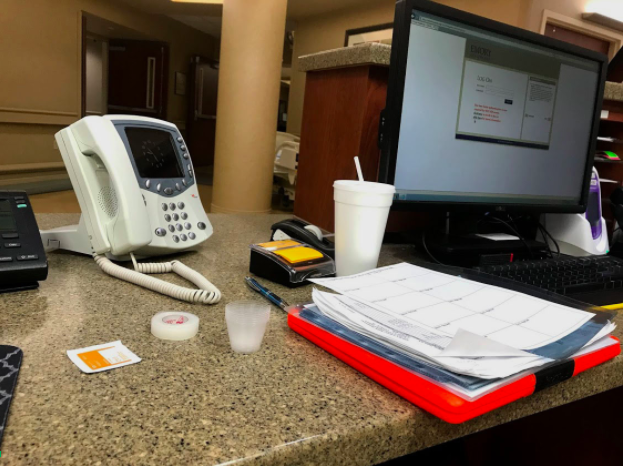
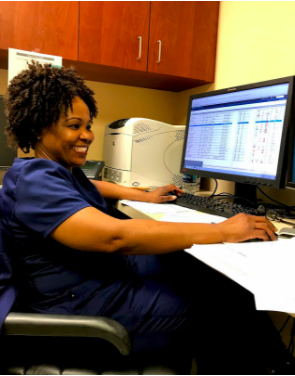
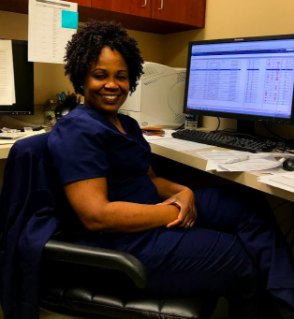
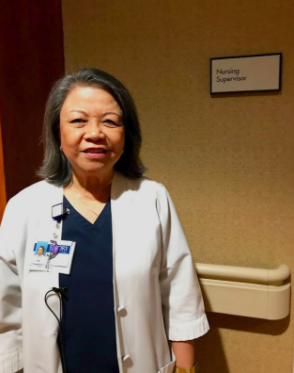
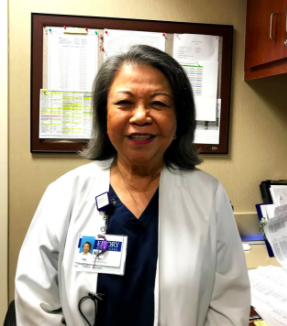
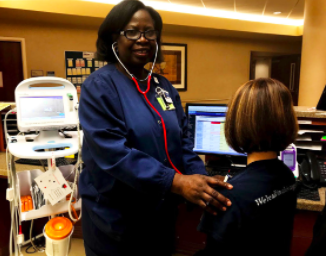
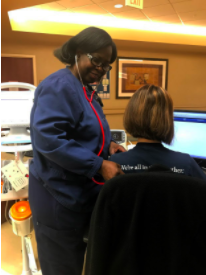
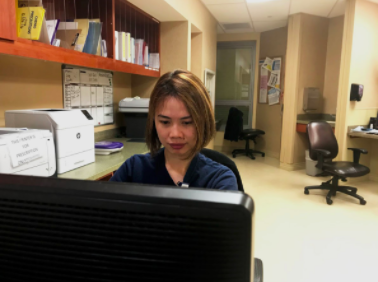
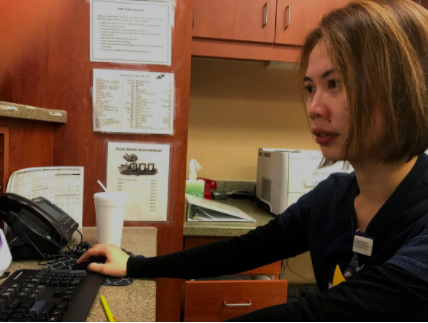
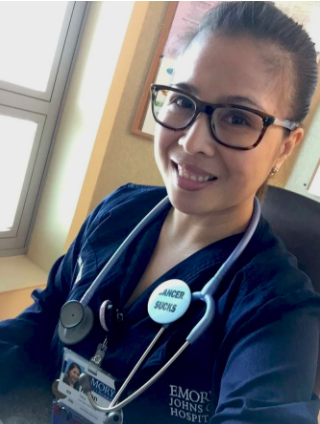
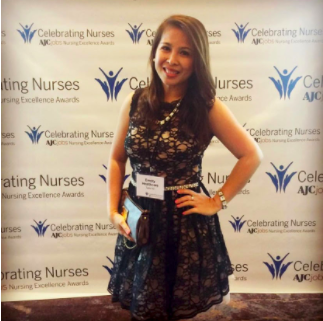
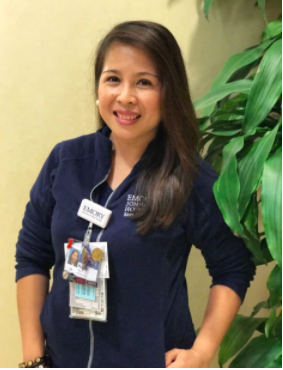
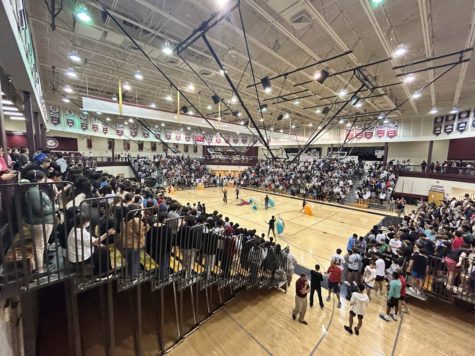
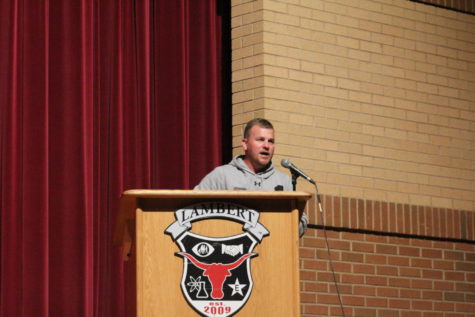
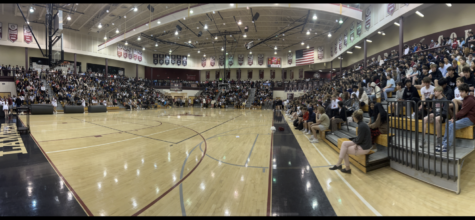
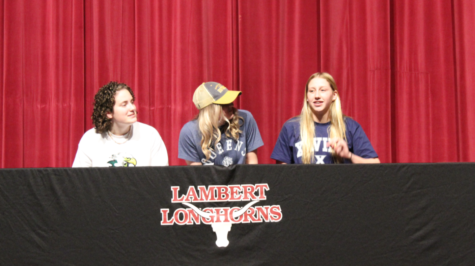
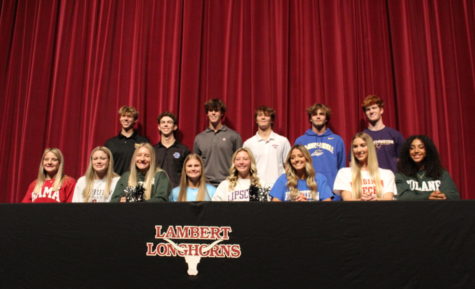
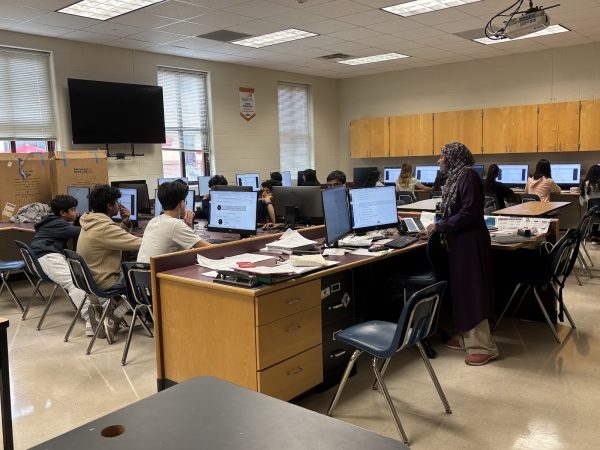
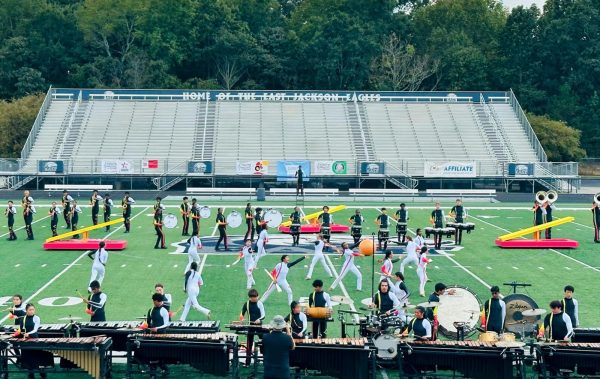
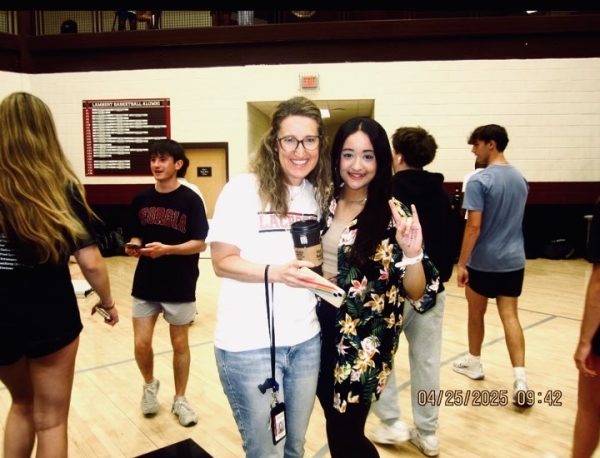
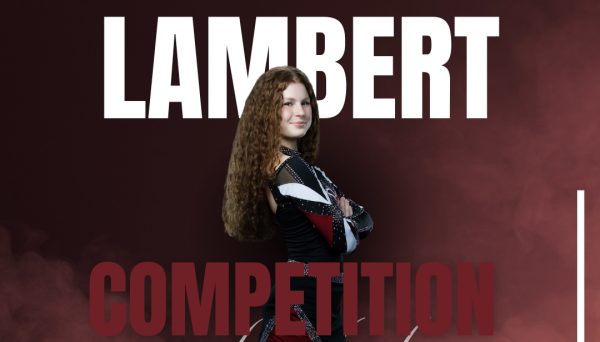
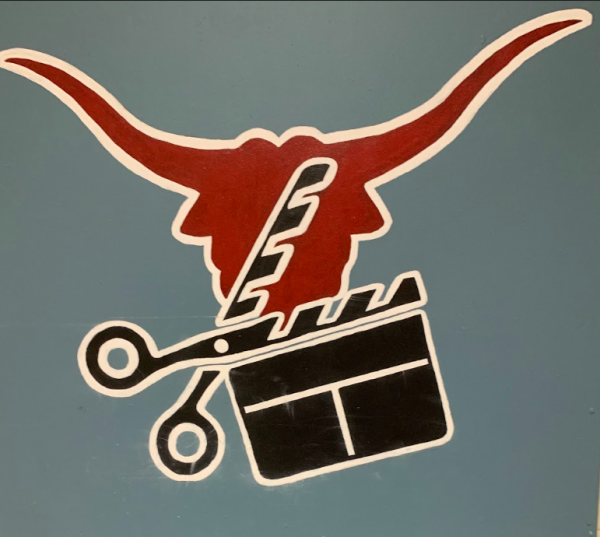
Karen • Feb 16, 2018 at 10:41 pm
Great article! Thank you for appreciating nurses.